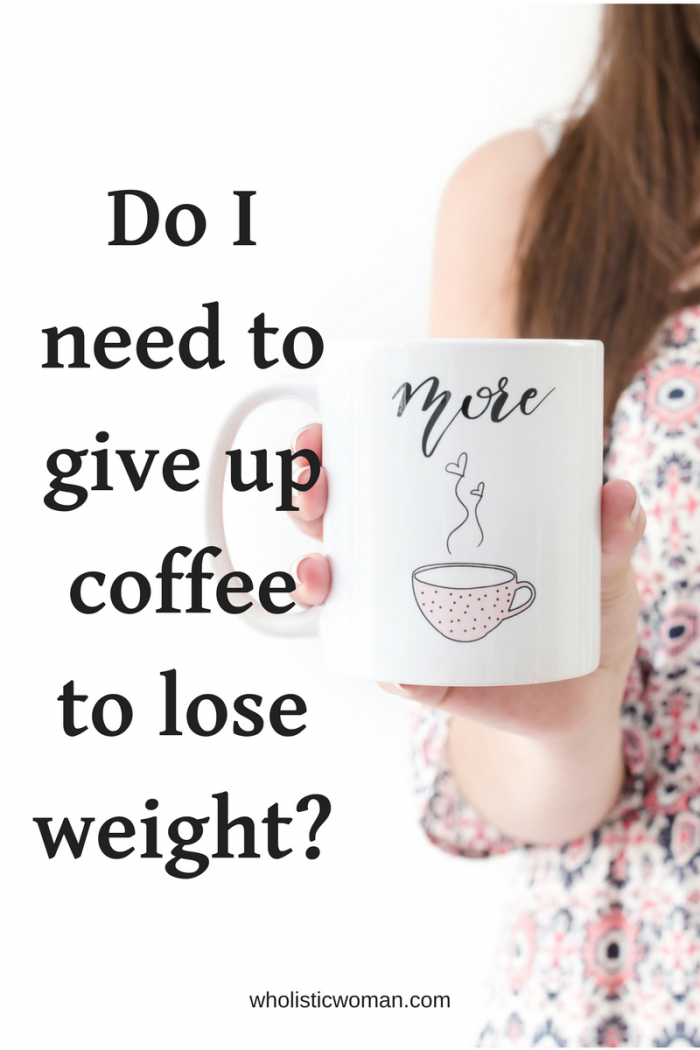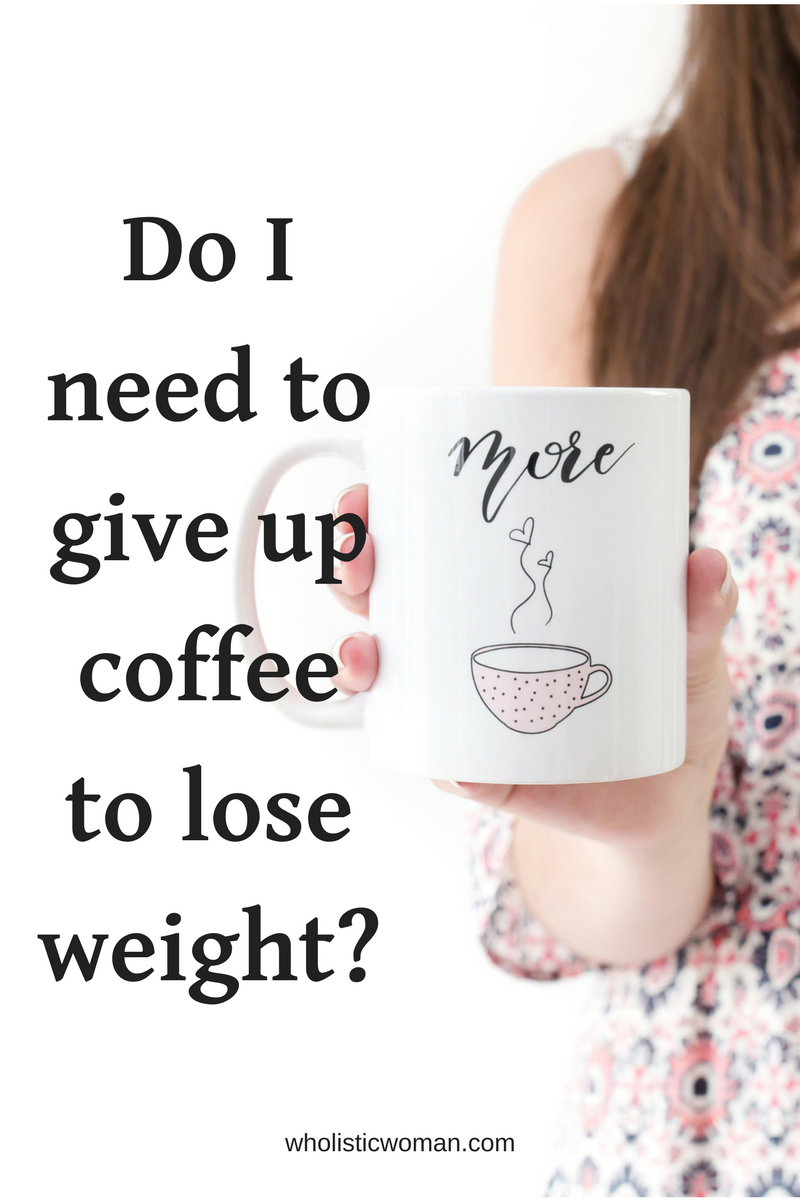
We all know how much I LOVE my coffee! In face when I was considering bariatric surgery that was one of my first concerns. “Do I have to give up coffee?”
Luckily the answer was no, after the first six weeks I was able to go back to my daily habit as long as I was able to get the full amount of water in.
Every once in awhile I hear about people who want to lose weight talk about how they are now giving up soda, coffee, and alcohol. I’ve never been much of a soda drinker but the other two? Let’s just say that I was very glad to learn about bioindividuality in my Precision Nutrition class!
Turns out that some people are able to digest caffeine/coffee better than others. I’m very glad that I got the gene that processes it very well.
If you don’t like coffee, you can stop reading now. But if you love coffee or are just curious, keep reading.
Like most nutrition headlines that say “Why coffee will help you drop 20 pounds” one day and “Stop drinking coffee if you want to have chiseled abs!” the next, there is a lot more to the story.
There is actual science behind why different people react differently to it. It’s a matter of your genetics and how much coffee you’re used to drinking.
NOTE: Coffee does not equal caffeine. Coffee contains between 50-400 mg of caffeine/cup, averaging around 100 mg/cup. Coffee is one of the most popular ways to consume this stimulant. But… a cup of coffee contains a lot of things over and above the caffeine. Not just water, but antioxidants, and hundreds of other compounds. These are the reasons drinking a cup of coffee is not the same as taking a caffeine pill. And decaffeinated coffee has a lot less caffeine; but, it still contains some.
Let’s look at caffeine metabolism, its effects on the mind and body, and whether coffee drinkers have higher or lower risks of disease. Then I’ll give you some things to consider when deciding if coffee is for you or not.
Caffeine metabolism
Not all people metabolize caffeine at the same speed. How fast you metabolize caffeine will impact how you’re affected by the caffeine. In fact, caffeine metabolism can be up to 40x faster in some people than others.
About half of us are “slow” metabolizers of caffeine. We can get jitters, heart palpitations, and feel “wired” for up to 9 hours after having a coffee. The other half is “fast” metabolizers of caffeine. They get energy and increased alertness and are back to normal a few hours later.
This is part of the reason those headlines contradict each other so much – because we’re all different!
(where have we heard this before? I love to tell people that their bodies are science experiments!)
The effects of coffee (and caffeine) on the mind and body
NOTE: Most studies look at caffeinated coffee, not decaf.
The effects of coffee (and caffeine) on the mind and body also differ between people; this is partly from the metabolism I mentioned. But it also has to do with your body’s amazing ability to adapt (read: become more tolerant) to long-term caffeine use. Many people who start drinking coffee feel the effects a lot more than people who have coffee every day.
Here’s a list of these effects (that usually decrease with long-term use):
- Stimulates the brain
- Boosts metabolism
- Boosts energy and exercise performance
- Increases your stress hormone cortisol
- Dehydrates (maybe–recent studies show it’s not as dehydrating as once thought, if at all)
So, while some of these effects are good and some aren’t, you need to see how they affect you and decide if it’s worth it or not.
Coffee and health risks
There are a ton of studies on the health effects of coffee, and whether coffee drinkers are more or less likely to get certain conditions.
Here’s a quick summary of what coffee can lead to:
- Caffeine addiction and withdrawal symptoms (e.g. a headache, fatigue, irritability)
- Increased sleep disruption
- Lower risk of Alzheimer’s and Parkinson’s
- Lower risk of developing type 2 diabetes
- Lower risk of certain liver diseases
- Lower risk of death (“all cause mortality”)
- Mixed reviews on whether it lowers risks of cancer and heart disease
Many of the health benefits exist even for decaf coffee (except the caffeine addiction and sleep issues).
NOTE: What’s super-important to note here is that coffee intake is just one of many, many factors that can affect your risks for these diseases. Please never think regular coffee intake is the one thing that can help you overcome these risks. You are health-conscious and know that eating a nutrient-rich whole foods diet, reducing stress, and getting enough sleep and exercise are all critical things to consider for your disease risk. It’s not just about the coffee.
Should you drink coffee or not?
There are a few things to consider when deciding whether you should drink coffee. No one food or drink will make or break your long-term health.
Caffeinated coffee is not recommended for:
- People with arrhythmias (e.g. irregular heartbeat)
- People who often feel anxious
- People who have trouble sleeping
- People who are pregnant
If none of these apply, then monitor how your body reacts when you have coffee. Does it:
- Give you the jitters?
- Increase anxious feelings?
- Affect your sleep?
- Give you heart palpitations?
- Affect your digestion (e.g. heartburn, etc.)?
- Give you a reason to drink a lot of sugar and cream?
Depending on how your body reacts, decide whether these reactions are worth it to you. If you’re not sure, I recommend eliminating it for a while and see the difference.
Extra Credit
Want to learn more about the science? Here are some reputable resources to check out:
https://authoritynutrition.com/coffee-good-or-bad/
http://www.precisionnutrition.com/all-about-coffee
http://www.health.harvard.edu/staying-healthy/a-wake-up-call-on-coffee
http://www.health.harvard.edu/blog/can-your-coffee-habit-help-you-live-longer-201601068938
http://suppversity.blogspot.ca/2014/05/caffeine-resistance-genetic.html
https://authoritynutrition.com/how-much-coffee-should-you-drink/
Are you a coffee drinker? Let me know in the comments below!



Great article and info.! I am giving up coffee for a few months as I embark on an Advocare thing…I will have caffeine in a drink they make called Spark, and it also has lots of other benefits..much like coffee. I always thought it was an inflammation thing too with coffee acidity? I LOVE my coffee, but I like it more after knowing I can give it up and then have it again in moderation…I could honestly drink a pot myself if left to my own devices!
I have heard of that. The longest I’ve given up coffee was six weeks and that was after bariatric surgery. Good luck!